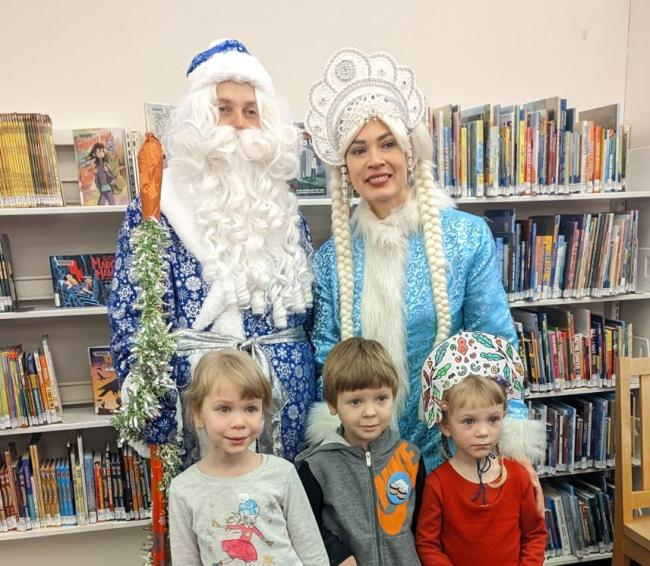Новый Год (Slavic New Year) is celebrated in over fifteen countries on December 31. At Multnomah County Library the word Slavic is added to the beginning of the phrase to acknowledge the distinct traditions of Slavic and Russian-speaking countries.
Each year, the library’s Russian-speaking team brings Slavic New Year celebrations to the library. The team includes people from various countries, including Russia, Armenia, Belarus, Ukraine and more.
Slavic New Year marks the beginning of the year with promises of a better and happier life. Celebrations center around family dinners, with signature dishes like olivier salad, dressed herring and jellied meat.
Yelena Stone, clerk at Gresham Library, shares that eating sweets was the highlight of new year's for her. “In Belarus, we got a lot of New Year candy around that time. We looked through all the candies and chose the prettiest ones to hang on the New Year tree.”
The New Year tree is a decorated pine tree similar to the Christmas tree. It is put up in homes for the Slavic New Year celebration, and decorated with toys, plastic snowflakes, chocolate figures and garlands.
Just like Santa Claus is a symbol of Christmas in the United States, Father Frost (also with a white beard and red coat) and his granddaughter Snegurochka (a girl made of snow) are well-known in Slavic New Year celebrations as the gift givers of the season.

Although there are similarities in the way that Slavic New Year is observed throughout former USSR countries, each country has its distinct festivities.
In Armenia, Slavic New Year is a time to visit relatives and friends. Marina Nersesian, Russian program specialist says, “We would stop by for at least a few minutes and bring candy and Armenian cognac with us. With numerous relatives, we would visit them from dawn to dusk on January 1 until January 14. Every relative visited would then sit you at the holiday table and let you try various dishes. It was about showing respect to older relatives and neighbors.”
In the Transcarpathian region of Ukraine bordering Romania, Hungary, Slovakia, and Poland, winter festivities begin on December 19 (Saint Nicholas's Day). Oleg Karpynets, library administrator, shares how the unique geographic location created distinct traditions.
“In my hometown in Ukraine, the tradition was for kids to clean their winter boots and place them on the windowsill in the evening of December 18, and the next morning, there were presents in them,” says Oleg. Another common tradition is to sing carols door to door.
In Multnomah County, the library is a place where members of the Slavic community can unite to keep their cultural heritage alive through conversation and celebration.
Looking for materials in other languages? Contact us.